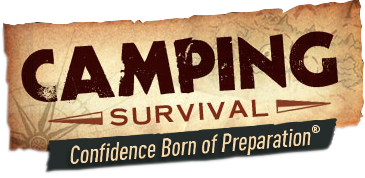Most of the information out there about prepping has to do with adults and how they can manage and navigate a disaster situation. Very few articles have been written regarding children and what they can do. There a lot of reasons for this, but a big part of it is that we expect less from children. In our minds, they should be taken care of and not have to worry about preparing for events.
This attitude might be why we have a generation that does not garden, can, or freeze dry foods for storage. It is why we have lost the reason our ancestors made it through the Great Depression. It is why during an actual crisis, instead of worrying about important things, stores were running out of toilet paper.
So it is important that we teach our children to prepare for things we know could happen. Earthquakes, floods, tornado's—these are facts of life. Even a second wave of this pandemic could come through and leave us sitting in an extended lockdown. Since we do not know what the future will bring, we should be raising our children to know and understand that fact as well.
RAISE AWARENESS
The first step in talking to your children about preparedness is letting them know the possibilities of what could happen without alarming them. Make this talk something light and not too intense. Stay away from a tone and topics that will get them overly concerned, and instead focus on helping them become conscientious.
Also be aware that different age ranges can handle different information. When you are talking to a 5 year old, they are not going to completely comprehend a tornado and the damage it can cause, where a 12 year old will.
Make your children aware that you are only preparing for the possibility of disaster—not the immediate certainty. Let them know that things need to be done so if disaster does strike you are well prepared, and that you would appreciate their help.

COME UP WITH A PLAN
Some children will love this part. Ask them questions like “what would we do if we had a flood, fire, or tornado?” Find out what they think the first steps are and what the second steps, third steps, and so on, would be.
Then ask what would need to be done to prepare for that. Are the lights going to be out? Do we have lights that do not require electricity? Do we have a way of cooking that does not require the stove? How long can we make it on the food that we have right now? Do you think we need more?
Come up with a plan that will cover all of that, then help them make a list of all the items they will need to make sure they are taken care of in the event something happens.
Remember to cover all the bases, then find a way to make the children part of the plan for your family. Making them responsible for themselves is one thing but coming up with something that also benefits the family is ideal. If they have a younger sibling, did they think about the things he or she may need? Make sure they are seeing the entire picture of the event and the family.

PREPARE
Now you can help them put together their own bug-out bag with items they find important and explain to them why that item would be handy and when they need to use it. Talk to them about each item you put into the bag and make sure they create a list of what is in it. Also include a short description of why it is there.
Make sure they come up with necessary items:
- Food – Whether you have them help with the entire family plan or just their part, make sure they have food in their stash.
- Water – Teach them about saving and storing water safely.
- Cooking – Depending on age and responsibility level, they will need a way to cook food.
- Light – Sometimes you can get lighting that also doubles as a charger for important devices.
Have them put whatever else you deem important into the bag, including a toy or blanket they find comforting (depending on age, of course).
Getting kids involved in preparing is generational. They will teach their children to do it, and so forth. Start them now on the road to preparedness so they can take care of their families when something happens.


1 comment
I think if we don’t have kids help with and explain to them why we are doing all of this then that will cause them to be even more afraid and more worried.